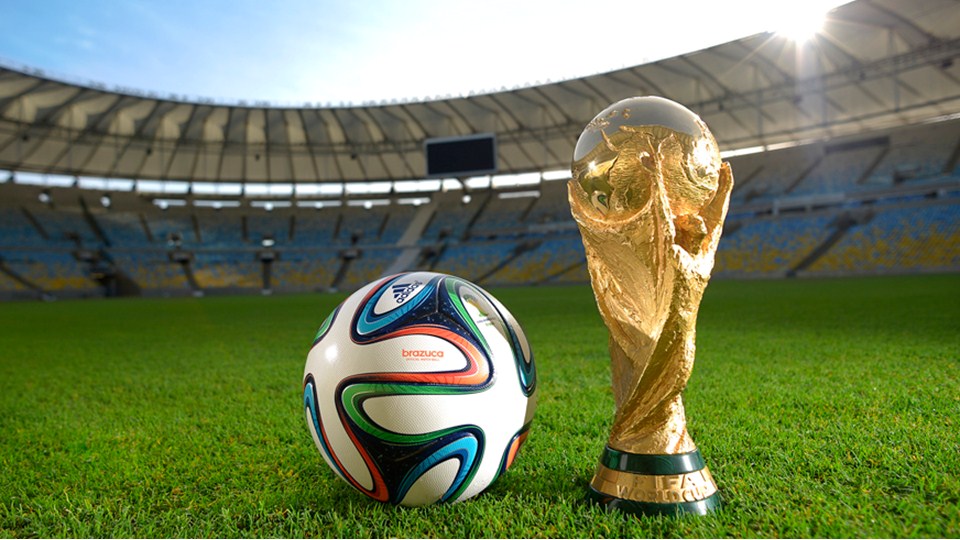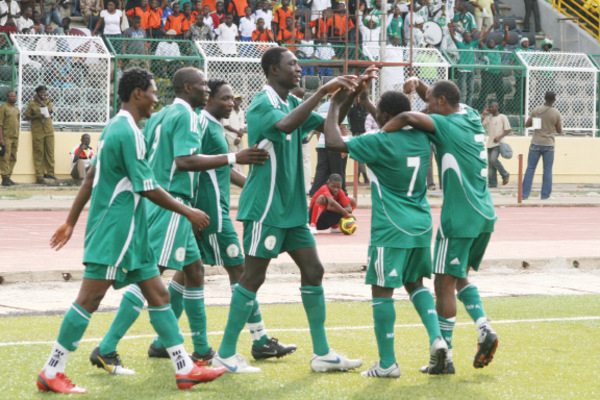First-ever Nov/Dec World Cup Begins In Qatar
Football’s hidden charm will, yet again manifest as a staggering five of the eight billion humans on earth will, from today, be glued to their television sets as the world’s biggest football extravaganza, the FIFA World Cup, begins in Qatar, today.
Up to December 18, that curtain would fall, not even the garment of controversy, which the tournament dubbed Qatar 2022 World Cup is robed in, will detract from the opium-like effect, that football has on its followers drawn from different nationalities, creeds, and religions, and all corners of the earth.
Happening at a time that gnashing of teeth occasioned by widespread conflicts, savage internecine wars, worsening insecurity, as well as flooding and other challenges made possible by climate change, both victims and perpetrators of these crises would, for once, be united in savouring the finest of football artistry.
Indeed, the FIFA-organised showpiece will avail football connoisseurs, the chance not only to behold a star-studded line-up of players (831 in all) but also to appreciate the efficiency and clinical finishing of lethal goal-scoring “machines” that will be on parade.
The international football tournament, which runs from November 20 to December 18, will be played in eight stadiums, all of which are located in and around the Qatari capital city of Doha. Today’s opening ceremony and the first match of the tourney between Qatar and Ecuador will take place in Al Khor’s Al Bayt Stadium (45 minutes north of Doha), and it seats 60, 000 people.
Considered by many as one of the world’s most watched events, the FIFA World Cup, which is now in its 22nd edition is the first World Cup, that the Arab world is hosting, as well as thesecond World Cup held entirely in Asia. The first was the 2002 tourney that South Korea and Japan hosted.
Furthermore, the tournament will also be the last to feature 32 teams, as the field will increase to 48 teams beginning from the next edition (in 2026) to be hosted in the United States, Mexico, and Canada.
The intense summer heat and humidity in Qatar, the smallest host by size since the 1954 tournament in Switzerland, necessitated shifting the Mundial to the winter. It will also be played in 29 days, a couple of days short of the timeframe of recent tournaments.
Ahead of the showpiece, there were dire concerns over how players and fans would react to, or cope with the extreme summer temperatures that they would have contended with before the tourney was eventually rescheduled to November, a development that has also disrupted the world’s football calendar.
Qatar’s Tumultuous Trip To Hosting 2022 Tourney
HOW a tiny desert nation, with no known football pedigree, ended up as the victor in a contest that had football and other heavyweights like the United States, South Korea, Japan, and Australia remains a mystery to many.
The mystery was further fuelled when immediately after Qatar’s emergence, allegations of vote-swapping, corruption, and connections to trade deals at the highest levels of government began to filter out.
Even though Qatar was cleared of corruption, the 22 FIFA executive committee members who took part in the voting 12 years ago, and two other officials were either suspended or accused, banned, or indicted over allegations of corruption and wrongdoing questions the clean bill of health handed the Arab Gulf nation.
Last week, 86-year-old former president of FIFA, Sepp Blatter, and former Germany male football team captain, Phillip Lahm, further muddied the water when he admitted the decision to award Qatar with the 2022 World Cup was a “mistake.”
Blatter who told a Swiss newspaper Tages-Anzeiger that he wanted to award the United States the 2022 World Cup, added: “The choice of Qatar was a mistake.
“At the time, we agreed in the executive committee that Russia should get the 2018 World Cup, and the USA should get it in 2022. It would have been a gesture of peace if the two long-standing political opponents had hosted the World Cup one after the other.
“It’s too small a country. Football and the World Cup are too big for that.”
When questioned on whether he felt responsible for the decision, he added: “For me it is clear. Qatar is a mistake. The choice was bad. What I’m wondering is why is the new FIFA president living in Qatar. He can’t be the head of the local World Cup organisation. That’s not his job. There are two organising committees for this — a local one and one from FIFA,” said Blatter who was cleared of fraud over a £1.6m payment to former UEFA president Michel Platini while he was FIFA president.
Seven days ago, Lahm, head of Germany’s organising committee for the 2024 European Championship, writing in a column for Zeit Online stressed that the World Cup “does not belong” in Qatar, stressing that it was “a mistake” to award the tournament to Qatar considering its human rights situation among others.
Lahm continued: “FIFA has damaged soccer and its credibility as a western organisation … Soccer isn’t a popular sport in Qatar and there’s practically no opportunity for girls to play.”
Novelties, Disruptions Thrown Up By First-ever November/December World Cup
SOME of the side attractions that travelling football fans usually look forward to during World Cups are sun-drenched afternoons and binging on alcoholic beverages. These two and many more would be absent from the Qatar World Cup. Last Friday, the sport’s governing body announced that Alcohol will not be sold at the World Cup’s eight stadiums.
Alcohol was set to be served “in select areas within stadiums,” despite its sale being strictly controlled in the Muslim country. But those in corporate areas of stadiums at the tournament will still be able to purchase alcohol.
With only 48 hours left on the clock for the kick-off, FIFA in a statement on Friday said: Alcohol will not be sold at the World Cup’s eight stadiums in Qatar after FIFA changed its policy two days before the start of the tournament.
“ Alcohol was set to be served in select areas within stadiums, despite its sale being strictly controlled in the Muslim country. Those in corporate areas of stadiums at the tournament will still be able to purchase alcohol.
The World Cup starts on Sunday when Qatar plays Ecuador.
“Following discussions between host country authorities and FIFA, a decision has been made to focus the sale of alcoholic beverages on the FIFA fan festival, other fan destinations, and licensed venues, removing sales points of beer from Qatar’s FIFA World Cup 2022 stadium perimeters.
“There is no impact on the sale of Bud Zero, which will remain available at all of Qatar’s World Cup stadiums.
“Host country authorities and FIFA will continue to ensure that the stadiums and surrounding areas provide an enjoyable, respectful, and pleasant experience for all fans.
“The tournament organisers appreciate AB InBev’s understanding and continuous support to our joint commitment to cater for everyone during the FIFA World Cup Qatar 2022,” the statement added.
Apart from removing alcohol sales points from all eight stadiums, football fans would now be wrapped up in coats, scarves, and blankets to keep cold at bay in the November/December tourney.
Upon being granted the tournament’s hosting right, one of the major concerns that cropped up (aside from a slew of massive logistical problems) was the Middle East’s scorching heat, as the average temperature in the gulf nation over a year is 29 degrees Celsius. During their summer months, things could go overboard with the temperature hitting 40 degrees Celsius, a wave of heat considered too much for players to compete in, and deeply concerning for their health.
Consequent to this, FIFA announced in 2015 that the World Cup would be played in November and December, as against the traditional June and July that the tournament usually holds. This decision was further backed by two feasibility studies at FIFA’s behest in Qatar, in 2014 and 2015, which kicked against the idea of the tournament being played between the traditional June-July slots.
While the decision to switch dates effectively doused concerns about the climate, it gave major leagues around the world a major scheduling problem as the event is holding during one of the more hectic times of the year. Of course, most participating nations did not take this lying low because of the effect it would have on their domestic leagues.
Still among other precedents that the 2022 FIFA tourney in Qatar is setting is the fact that it is the first World Cup to be held in the Middle East. This is in keeping with FIFA’s pledge to stage at least one major international tournament in the region before 2030.
Additionally, with a November start and a December finish, the Qatar 2022 World Cup is also the first-ever World Cup to be held during the Northern Hemisphere winter months.





